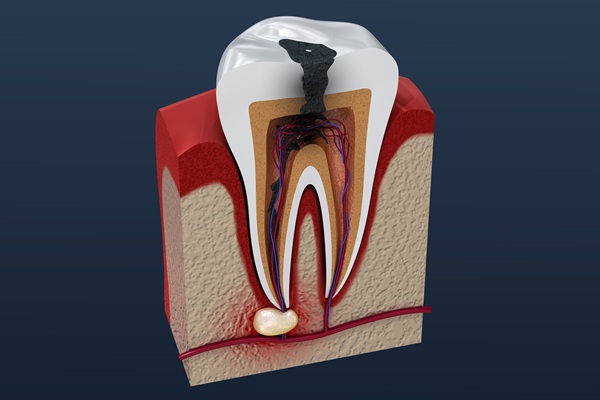How Pain Can Be Managed by a Dental Anesthesiologist

A dental anesthesiologist can help to manage pain before, during, and after dental treatments. These professionals also help to deal with the anxiety some people experience when getting dental treatments.
The role of a dental anesthesiologist can be just as important as the role of a dentist. These are the oral professionals who administer sedatives, anesthesia, and other pain management tools used in dentistry. Treatments that require the services of one are typically more intensive than routine dental treatments like teeth cleaning.
How a dental anesthesiologist helps with pain management
There is no way around it -- some dental procedures would be painful without anesthetics, and the pain can linger for days after treatment. Most dental procedures do not need an anesthesiologist since the pain can be managed with a local anesthetic.
Many people have a fear of going to the dentist, and pain is one of the main factors that lead to this fear. For some, the fear of getting dental treatments can be so severe that they refuse to fix dental issues they are aware of like cavities and broken teeth. People with dental anxiety often come up with every excuse imaginable to avoid showing up for dental appointments. It often takes severe pain to force them to finally see a dentist. A dentist can provide deep levels of sedation that can help such people to get the treatments they need.
When you might need an anesthesiologist
A patient might need an anesthesiologist for a surgical procedure or a treatment that is expected to take more than two hours to complete. The anesthesiologist can administer deep sedatives that keep the patient unconscious during the treatment. The patient will not remember anything afterward, and they do not feel pain during the treatment.
During surgical dental procedures, the dentist focuses on performing the treatment, while the anesthesiologist focuses on taking care of the patient and monitoring their vitals.
The services of an anesthesiologist might be needed for invasive treatments like bone grafts or the installation of dental implants. General anesthesia might be administered so the patient is not conscious as surgical procedures are being performed on their mouth.
Less involved procedures like the placement of fillings or crowns do not typically require general anesthesia. A local anesthetic can be used to manage the pain while the dentist works, and laughing gas can be used to manage any anxiety.
An anesthesiologist makes it easier for dentists to do their jobs while keeping patients comfortable and safe during treatments. They make it possible for dentists to perform some of the more complicated treatments used in dentistry.
Get comfortable dental treatments
An anesthesiologist can help you to get over dental anxiety, and they administer sedatives that make your experience at the clinic more tolerable. They also make it possible for dentists to perform more complicated treatments that require oral surgery. Do not let dental anxiety prevent you from getting the dental treatments you need. Call or visit our Lincroft clinic to learn more about sedative dentistry.
Request an appointment here: https://lincroftvillagedental.com or call Lincroft Village Dental Care at (732) 842-5005 for an appointment in our Lincroft office.
Check out what others are saying about our services on Yelp: Dental Anesthesiologist in Lincroft, NJ.
Recent Posts
There is no one-size-fits-all answer to whether a smile makeover or a single cosmetic dental treatment is better. A smile makeover includes multiple procedures to improve the overall shape, color, and alignment of a smile in a planned order. However, some individuals may only need one cosmetic dental treatment to achieve their smile goals. The…
Patients often search for root canal treatment when a tooth aches from deep decay, a crack, or inflamed pulp tissue. This therapy removes irritated nerve tissue, disinfects the canal space, and seals the tooth to prevent reinfection. By preserving the natural root, the procedure maintains bite balance and chewing strength. With careful planning, a restored…
Dental implant restoration is a reliable and long-lasting solution for replacing missing teeth. However, caring for and maintaining your dental implant from the start is important to get the best results. A consistent oral hygiene routine and regular dental visits are necessary to protect this investment in your long-term oral health.Brushing and flossing are essential…
An implant dentist uses artificial tooth roots to anchor a restoration for a lost tooth or teeth. By replacing the lost tooth roots, dental implants provide you the strength and stability needed to chew food and perform other oral functions. Also, they help to stimulate and preserve jawbone structure, stopping bone loss, and maintaining facial…


